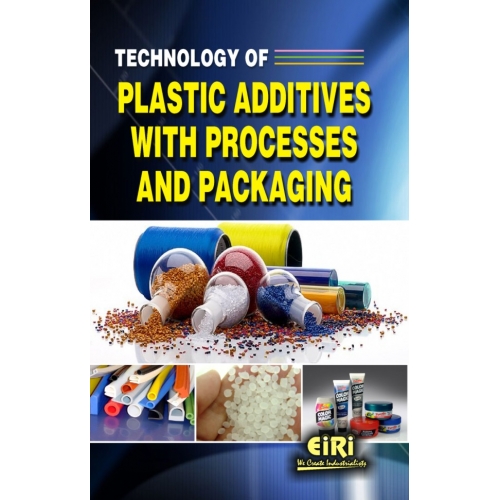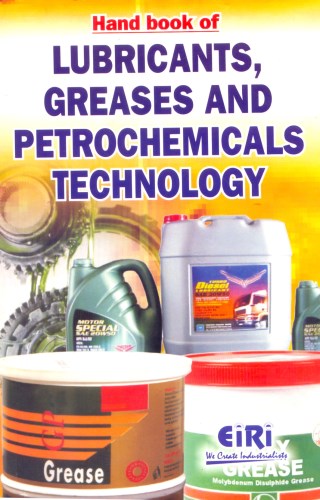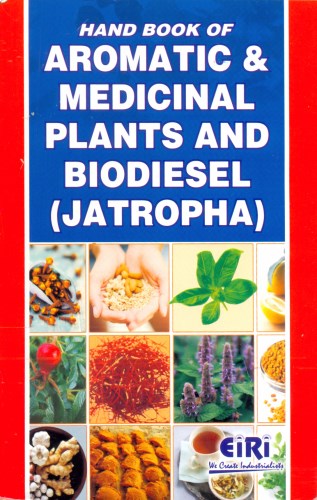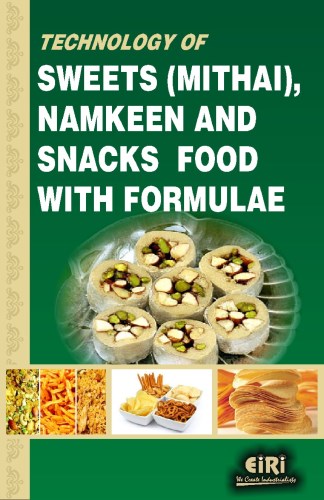Description
Plastic Additives: An Introduction
Additives Make Plastics
Look good
Additives Save Money
Additives Make Plastics Safe and Sound
Additives Make Plastics Clean And Healthy
Additives Make Plastics Work Longer
Additives Respect The Environment
Organic Peroxides
Types
Dialkyl Peroxides
Diacyl peroxides
Hydroperoxides
Ketone peroxides
Peroxydicarbonates
Peroxyesters
Process
Peroxyketals
Raw Materials
Suppliers
Trends and Forecasts
Plasticizers
Description
Phthalate Esters
Preparation of Typical
Commercial Cellulose
Acetate Phthalate
Aliphatic Esters
Epoxy Ester
Phosphate Triesters
Trimellitates
Polymer Plasticizers
Methods
Other Plasticizers
Suppliers
Trends and forecasts
Polyurethane Catalysts
Description
Tertiary aliphatic amines
Preparation
Reductive amination of 6- undecanone with
dimethylamine using a nickel catalyst
Organometallic compounds
Preparation
Process
Suppliers
Trends and forecasts
Fillers
Why are Fillers Used?
Glass Fillers Explained
Color Basics
Color Developments for Bioplastics
Special Effects in the
Consumer Market
Infrared Reflective Pigments
Regulatory Compliant Colorants
Specialty Alloys
Aluminum
Brass
Bronze
Other Grades include
Copper
Hastelloy® C-276
Haynes 242 Alloy
Inconel® – nickel-chromium iron
Invar 36 Alloy
Kovar Alloy
Molybdenum
Nickel 200, 201
Tantalum and Ta-Alloys
Titanium
Tungsten
Maximizing Performance Using Copper Alloys
Copper Alloys for Conveying Plastic In Injection Molds
Sprue Bushing Radius
Sprue Bushing Taper
Sprue Retention and Anti- Rotation
Standard Sprue Bushing Availability
Conventional Injection Mold Runner Systems
Injection Mold Runner Bars
Runner Sizing
Formulas for calculating the area of the runner
Runner Bar Mating
Runner Bar Cooling
Sprue Puller
Structurally Enhanced Plastics with Filler Reinforcements
Particle Surface Characteristics
Particle Hardness and Toughness
Cellular Plastic Additive
Environmentally Friendly Additives for Plastics
Preparation of Environmentally Friendly Additive for Plastics
Effect of Additive for Plastics in Absorbing Hydrochloric Acid Gas
Effect of Absorbing Hydrochloric Acid Gas of PE Bags Comprising
Environmentally Friendly Additive for Plastics
Polyimide Processing Additives
Preparation of the 422 Copoly(amic acid) Base Resin
Imidization of the 422 Copoly(amic acid) Base Resin
Preparation of LARCTPI(M) Polyimide Film
Preparation of LARCTPI(H) (3,3’4,4′-Benzophenonetetracarboxylic
Dianhydride 3,3′-Daiminobenzophenone
Polyimide) Solution and Film
Preparation of the 2,2-Bis[4-(3,4-dicarboxyphenyl)]-hexafluoropropane
Dianhydride-2,2-Bis[4-(4-aminophenoxy)-phenyl]
hexafluoropropanePoly(amic acid)
[6F-BDAF, Poly(amic acid)]
Endcapping of the 6F-BDAF, Poly(amic
acid) Resin 5 with Phthalic Anhydride
Preparation of the Pyromellitic Dianhydride-Aniline
Di(amic acid) Additive Di(NMP) Complex [PMDA-An.
2NMP, Di(amic acid)]
Preparation of the 3,3’4,4′- Benzophenonetetracarboxylic
Dianhydride- Aniline Di(amic acid) Additive [BTDA-An, Di(amic acid)]
Preparation of the Phthalic Anhydride-Aniline Amid
Acid Additive [PA-An, Amic Acid]
Preparation of the 4,4′- Diaminodiphenylmethane- Phthalic
Anhydride Di(amicacid) Additive [4,4′-DADPM-PA, di(amic acid)]
Preparation of the 3,3′- Diaminodiphenylmethane- Phthalic
Anhydride Di(amic acid) Additive [3,3′- DADPM-PA, Di(amic acid)]
Preparation of the 3,3′,4,4′-Oxydiphthalic Anhydride-Aniline Di(amic acid)
Additive [ODPA-An, di(amic acid)]
Preparation of the 4,4′-Bis (3,4-dicarboxyphenoxy) diphenyl sulfide
dianhydride-Aniline Di(amic Acid) Additive [BDSDA-An,di(amic acid)]
Preparation of 1,4- Phenylenediamine-Phthalic Anhydride Di(amic acid) Additive
[p-PDA-PA, di(amic acid)]
Preparation of the 2,2-bis [4-(4-aminophenoxy) phenyl]-hexafluoropropane
Phthalic Anhydride Di(amic acid) Additive [BDAFPA, di(amic acid)]
Preparation of Additional Amic Acid Additives, Endcapped with Aniline
(An) or Phthalic Anhydride (PA)
Preparation of the NPhenylphthalimide Additive
Preparation of the N,N’-Diphenylpyromellitimide
Additive [PMDA-An, diimide]
Preparation of the N,N’- Diphenyl-4,4′- carbonyldiphthalimide
Additive [BTDA-An, diimide]
Preparation of the N,N’- Diphenyl-4,4′(2,2- hexafluoropropyl)-
diphthalimide Additive [6F-An, diimide]
Preparation of the N,N’- Bis(3-trifluoromethylphenyl)-
4,4′-2,2- hexafluoropropyl) diphthalimide Additive
[6F-3,3′-TFMAn, diimide]
Preparation of the N,N’- Diphenyl-4,4′-
oxydiphthalimide Additive [ODPA-An, diimide]
Preparation of the N,N’- Bis(4-benzoylphenyl)-
4,4′-(2,2-hexafluoropropyl)- diphth alimide
Additive [6F-4-ABP, diimide]
Preparation of the N,N’- (Methylenedi-1,4-
phenylene)diphthalimide Additive [p-MDA-PA, diimide]
Preparation of the N,N’(Methylenedi-1,3-
phenylene)diphthalimide [m-MDA-PA, diimide]
Preparation of the N,N’-[[2,2- bis[4-(4-phenoxy)
phenyl]hexafluoropropyl]] diphthalimide
Additive [BDAFPA, diimide]
Preparation of Additional Imide Additives
Endcapped with Aniline (An), Phthalic Anhydride
(PA), or Miscellaneous Endcaps
The thermal imidization of certain amic acid additives
Reprecipitation and Imidization of the
422 Copoly(amic acid) Base Resin
Polyimide Composition of the 422 Copolymer
Base Resin Containing 0.05% by wt. of the
PMDA-An Di(amic acid) Additive
Polyimide Composition of the 422 Copolyimide
Base Resin Containing 0.50% by wt. PMDA-AN Diimide
Polyimide Composition of the 422 Copoly(amic
acid) Base Resin Containing 2.5% by wt. of the PMDA-AN
Di(amic acid) Additive
Polyimide Composition of the 422 Copoly(amic
acid) Base Resin Containing 5.0% by
wt. of the PMDA-AN Di(amic acid) Additive
Preparation of the 422 Copolyimide Base
Resin Containing 5.0% by wt. of PMDA-An Diimide Additive
Polyimide Composition of the 422 Copoly
(amic acid) Base Resin Containing 2.5% by wt. of the BTDA-AN Diimide Additive
Polyimide Composition of the 422 Copolyimide
Base Resin Containing 5.0% by wt. of Napthalene as the Additive
Polyimide Composition of the 422 Copoly
(amic acid) Base Resin Containing
2.5% by wt. of the p-PDA-PA, Di(amic acid) Additive
Polyimide Composition of the 422 Copoly (amic acid) Base
Resin Containing 5.0% by wt. of the
p-PDA-PA Di(amic acid) Additive
Polyimide Composition of the 422 Copoly(amic acid)
Base Resin Containing 2.5% by wt. of the 4,4′-
ODA-PA Diimide Additive
Polyimide Composition of the 422 Copolyimide Base Resin
containing 5.3% by wt. of the 6F-An Diimide Additive
Polyimide Composition of the 422 Copolyimide Base Resin
Containing 15% by wt. of the 6F-An, Diimide Additive
Polyimide Composition of the 422 Copolyimide
Base Resin Containing 5.3% by wt. of the 6F-TFMAn Diimide Additive
Film Formation from a Composition of LARCTPI(M) and 3.0% by
Weight of the BTDAAn Di(amic acid) Additive
Film Formation From a Composition of LARCTPI (M) and 3.0% by Weight of the 3,3′-
DABP-PA Di(amic acid) Additive
Extended Cure of a LARCTPI(M) Film Containing
3.0% by Weight of the 3,3′-DABP-PA Di(amic acid) Additive
Film Formation From a Composition of LARCTPI(M) and 5% by
Weight of the 3,3′-DABP-PA Di(amic acid) Additive
Film Formation From a Composition of LARCTPI(M) and 10% by
Weight of the 3,3′-DABP-PA Di(amic acid) Additive
Film Formation From a Composition of LARCTPI(
M) and 3.01 by Weight of the PMDAAn.
2NMP Di(amic acid) Additive
Extended Cure of a LARCTPI(M) Film Containing
3.0% by Weight of the PMDA-An.2NMP
Di(amic acid) Additive
Film Formation From a Composition of LARCTPI(H) and 3.0% by Weight of the BTDAAn
Di(amic acid) Additive
Film Formation From a Composition of LARCTPI(
H) and 5.0% by weight of the BTDA-An
Di(amic acid) Additive
Film Formation From a Composition of LARCTPI(
H) and 3.0% by Weight of the 3,3′-
DABP-PA Di(amic acid) Additive
Film Formation From a Composition of LARCTPI(H) and 3.0% by Weight of the PMDAAn.
2NMP Di(amic acid) Additive
Extended Cure of a LARCTPI(H) Film Containing
3.0% by Weight of the PMDA-An.2NMP
Di(amic acid) Additive
Film Formation From a Composition of LARCTPI(H) and 5.0% by
Weight of the 6FDAAn Di(amic acid) Additive
Film Formation From a Composition LARCTPI(H) and 5.0% by Weight of the 3,3′-
DDSO2 PA Di(amic acid) Additive
Preparation and Characterization of a
LARC-TPI Polyimide Graphite Composite
Modified with a PMDAaniline Di(amic acid) Additive
Storage-stable Plastics Additives
Liquid Colourant/Additive Concentrates for Plastics
Hydrophilic Additives
Synthesis of the Additives
Additive 1
Additive 2
Additive 3
Additive 4
Wetting Test
Hydrophobicizing Additives
Method A :Dispersion 1
Method B: Dispersion 2
Results of the Emulsification Experiments
Method 1 :Powder 1
Method 2: Powder 2
Method 3: Powder 3
Method 4 :Powder 4
Comparative Method 5: Powder C5
Method 6: Powder 6
Method 7: Powder 7
Method 8: Powder 8
Method 9: Powder 9
Comparative Method 10:
Powder C10
Comparative Method 11: Powder C11
Asphalt Additive
Method 1~20 and Comparative Methods 1~14
Methods 12~13: R
contains one branched
methyl group
Anti-treeing Additives
Process 1
Process 2
Process 3
Process 4
Process 5
Rubber Additive
Preparation Of Methods
Effects on Rubber Processability
Effect on Tack
Other Parameters
Physical properties of the rubber compounds
Other products
Waste Plastic Additive for Asphalt
Additive Composition Methods
Asphalt Composition Methods
Impregnation of Plastic Substrates
with Photo chromic Additives
Process 1
Process 2
Process 3
Low-dust Granules of Plastic Additives
Method 1
Method 2
Method 3
Method 4
Method 5
Method 6
Method 7
Method 8
Mixed Ester Plastic Additive
Method 9
Method 10
Method 11
Fire-retardant Plastics with Glycoside Additive
METHODS
Additive for Papermaking
Problems to be Solved by the Method
Method 1
Methods 2-8 and comparative methods 1-11
Use methods 1-6 and comparative use methods 1-9
Use method 7 and 8 and comparative method 10 and 11
Effect of the method
Degradable Plastics Containing Dualfunction Additive System
Method 1
Method 2
Method 3
Method 4
Packaging for Plastics Additives
Low Visibility Laser Marking Additive
Preparation of Plastic Extrudate Containing an Additive
Injecting Liquid Additives into Plastic Extruders
Method of Preparing Moldable Plastic and Additive Agents
Uncolored Plastic Pellets
Colour Concentrate Pellets
Classification Methods
Other Treatments or Additives Besides Coloring Agents
Engineering Plastics and Additive
Process 1
Process 2
Process 3
Spray Application of plastics Additives to Polymers
Listing of Chemicals and Equipment
Method 1: Solubility of CO2 in Carrier Liquid 1
Method 2: Solubility of CO2 in Various Liquids at Room Temperature
Method 3: Viscosity Reduction Trial with a Mixture of Stabilizers
Method 4: Spraying Trials
Method 5: Additional Spraying Trials
Method 6: Demonstration of Low Average Flow Rate Using Intermittent Spraying
Method 7: Demonstration of Particle Size Reduction of Stabilizer 2 Upon Spraying
Method 8: Particle Size Reduction Trial of Antioxidant 1 Upon Spraying
Method 9: Particle Shearing in a Power Mixer
Method 10: Demonstration of Slurry Spraying in a Continuous Feed, High Pressure Spray
Method 11: Determination of CO2 Solubility in Carrier Liquid 1
Method 12 : Effect of Varying the Amount of CO2
Method 13: Particle Coating/Extrusion Trials
Machine for Producing Additive Containing Plastic Articles
Method 1
Method 2
Additive Metering Apparatus For Plastic Processing Machine
Project Profile of an Additive
Process Technology






